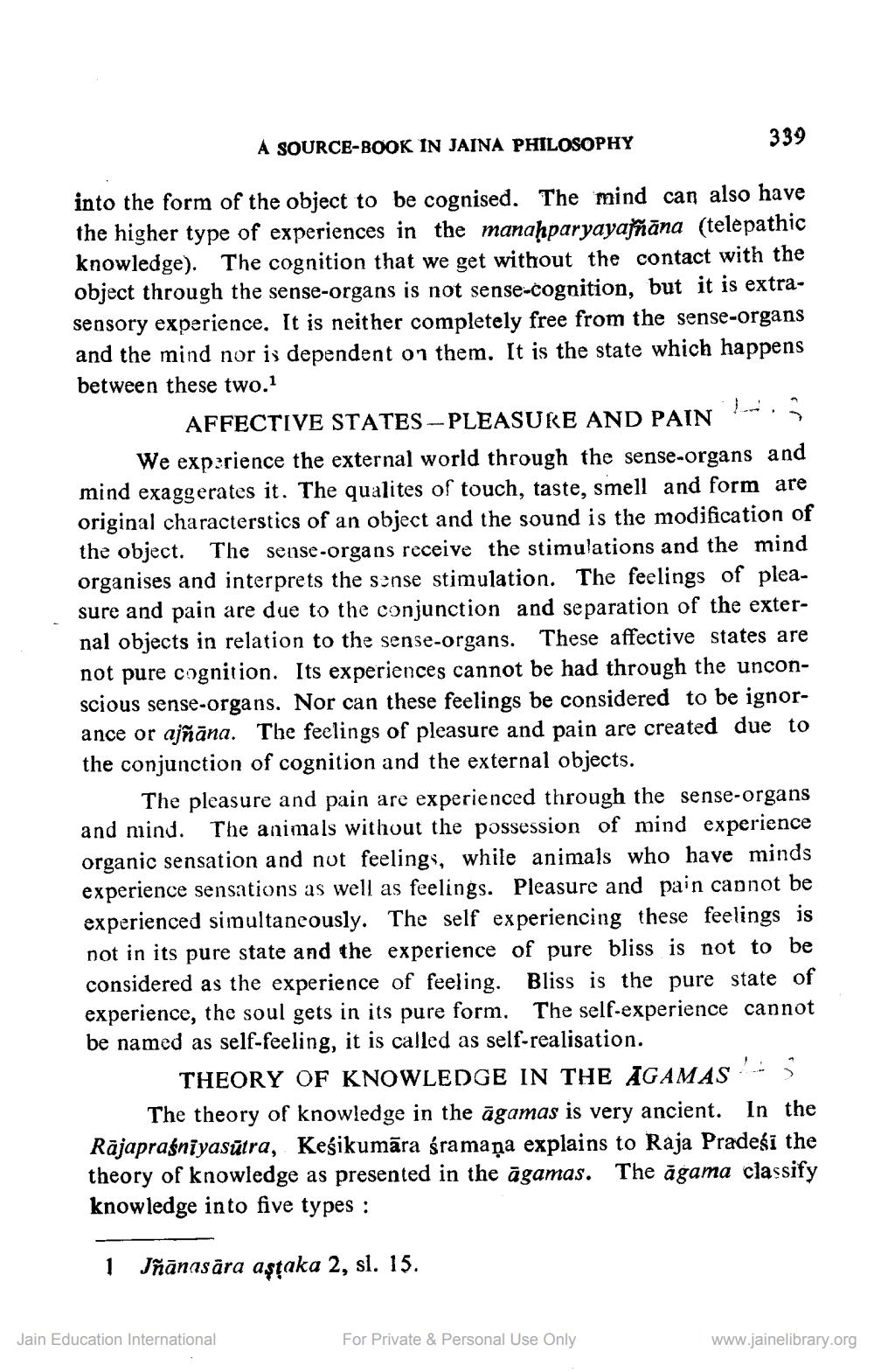________________
A SOURCE-BOOK IN JAINA PHILOSOPHY
339
into the form of the object to be cognised. The mind can also have the higher type of experiences in the manaḥparyayajñāna (telepathic knowledge). The cognition that we get without the contact with the object through the sense-organs is not sense-cognition, but it is extrasensory experience. It is neither completely free from the sense-organs and the mind nor is dependent on them. It is the state which happens between these two.1
AFFECTIVE STATES -- PLEASURE AND PAIN!. We exp:rience the external world through the sense-organs and mind exaggerates it. The qualites of touch, taste, smell and form are original characterstics of an object and the sound is the modification of the object. The sense-organs receive the stimulations and the mind organises and interprets the sense stimulation. The feelings of pleasure and pain are due to the conjunction and separation of the external objects in relation to the sense-organs. These affective states are not pure cognition. Its experiences cannot be had through the unconscious sense-organs. Nor can these feelings be considered to be ignorance or ajñāna. The feelings of pleasure and pain are created due to the conjunction of cognition and the external objects.
The pleasure and pain are experienced through the sense-organs and mind. The animals without the possession of mind experience organic sensation and not feelings, while animals who have minds experience sensations as well as feelings. Pleasure and pain cannot be experienced simultaneously. The self experiencing these feelings is not in its pure state and the experience of pure bliss is not to be considered as the experience of feeling. Bliss is the pure state of experience, the soul gets in its pure form. The self-experience cannot be named as self-feeling, it is called as self-realisation.
THEORY OF KNOWLEDGE IN THE AGAMAS!)
The theory of knowledge in the āgamas is very ancient. In the Rājapraśniyasūtra, Keśikumāra śramaņa explains to Raja Pradesi the theory of knowledge as presented in the āgamas. The āgama classify knowledge into five types :
1
Jñānasāra așțaka 2, sl. 15.
Jain Education International
For Private & Personal Use Only
www.jainelibrary.org




